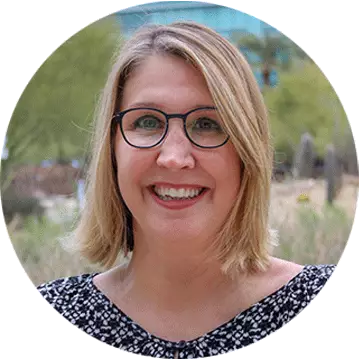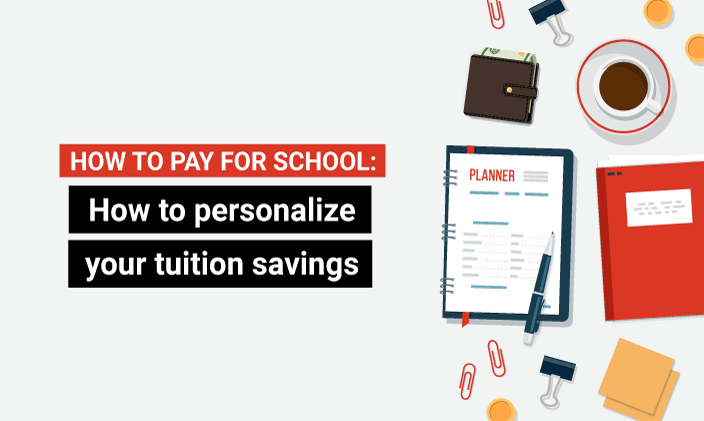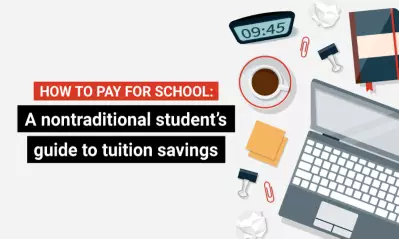Are you getting the most from your tuition?

Written by Dawn Handschuh

Reviewed by Chris Conway, Director of Financial Education Initiatives and Repayment Management

College-bound students often juggle many considerations when choosing which school to attend: There are the degree programs, course curriculum and faculty expertise, of course, but also financial aid and tuition expenses.
Tuition is typically thought of only as the cost of taking courses and class instruction, but it also can include other benefits savvy students can uncover as they evaluate schools and what they have to offer. Let’s review two compelling benefits tuition may include beyond coursework and classroom instruction.
Demonstrating new skills with digital badges
Some schools offer micro-credentials, or digital badges, that validate your achievements (both technical and soft skills) in a specific area. A digital badge will contain your name and the name of the school awarding you that badge. It may also be embedded with metadata providing further details, such as what you produced to earn the badge. Essentially, digital badges signal skills achievements or demonstration to prospective employers.
Different ways to earn a digital badge
Earning a badge can happen a number of ways, depending on how and where you acquire your education. Some examples include:
- Completing an online workshop or courses
- Completing related assignments
- Internships
- Volunteer work in your chosen field
- Various achievements outside the classroom in your field of interest
University of Phoenix (UOPX), for example, offers digital badges for both undergraduate and postgraduate degree programs.
Digital badges arrived at UOPX about two years ago, according to Vice Provost Doris Savron. They give students an “artifact” to use on social media or their resumé to demonstrate what they learned, which empowers them to back up statements on their resumé with a visual badge.
For prospective employers who value skills-based hiring, digital badges provide reassuring insights to a candidate’s qualifications because they add evidence-based details to what a resumé says.
Digital badges can also help students define their brand and focus on a career path while distinguishing them from a crowded field of job seekers.
Conveniently, badges can be emailed or sent as a digital attachment to prospective employers or used on professional social media profiles, such as on LinkedIn®.
It’s worth noting that many corporations use digital badges for the advancement of their existing workforce, not just for recruiting new workers. These badges allow managers to quickly assess newly acquired skill sets, incentivize employees to acquire new skill sets, invest in their employees’ careers and encourage a culture of lifelong learning.
Positioning yourself for workplace success with a bevy of career resources
Career services could be one of the most essential yet overlooked aspects of your college experience, according to Forbes .
In the past, colleges and universities focused mostly on helping newly minted graduates land that first job after graduation. Today, schools have stepped up to the challenges of an increasingly competitive and complex workplace by providing cutting-edge career support, not just for new grads but also for seasoned professionals, potentially spanning a 60-year stretch in the workplace.
Career resources represent an important part of your educational experience. And for some career-minded students, the best schools provide a holistic array of tools, counseling and personalized guidance that prepares students for productive and fulfilling careers.
Expanding the scope of career services beyond job fairs and job postings, forward-thinking schools may offer so-called life management courses — like emotional intelligence, problem-solving behaviors and decision-making — that help undergrads acquire skills that will serve them well for years to come.
At UOPX, for example, career services do not end upon graduation. The school’s Career Services for Life® program supports both students and graduates with a robust suite of services including:
- Exploratory career research with data on salaries and projected growth, as well as assistance aligning interests with possible career trajectories
- Coaching
- Interview prep
- Resumé building
- Salary negotiation
- Networking and mentorships
“Ultimately, a student should be looking at how a school supports them — academically, financially, professionally, mentally,” says Christine Conway, director of financial education initiatives at UOPX. “How do they help students create a complete financial plan? What do they do to help students reach graduation? And how do they see and support the student as a complete person: parent, worker, student, friend?”
At the Life Resource Center , she says, students benefit from specialized assistance from the day they start school through graduation, including parenting resources and time and stress management skills.
Other UOPX support services include:
- Tutoring tools and resources as well as real-time, one-on-one tutoring 24/7
- Student organizations where students practice networking and develop leadership skills
- Help in understanding the loan repayment process
- Making students aware of money-saving resources (e.g., employer benefits
)
- Popular monthly study sessions that help online students connect with classmates, form friendships, share their ambitions and compare notes
Beyond programs of study, diplomas and certificates, there are many benefits that come with tuition and that give students a leg up when preparing for a lifetime of satisfying and productive work. Such advantages may be just as important as the curriculum itself, so it’s important for those pursuing a degree program to carefully consider how their school of choice helps prepare them for life beyond graduation.
LinkedIn is a registered trademark of LinkedIn Corporation and its affiliates in the United States and/or other countries.

ABOUT THE AUTHOR
Dawn Handschuh has been putting pen to paper for more than 30 years, writing widely on topics related to student lending, personal finances, everyday money management and retirement planning. She makes her home in Connecticut with her husband and two energetic German shepherds.

ABOUT THE REVIEWER
As Director of Financial Education Initiatives and Repayment Management, Chris Conway works with departments across the University to provide resources that allow students to make more informed financial decisions. She is also an adjunct faculty member for the Everyday Finance and Economics course at the University, and she chairs the National Council of Higher Education Resources College Access and Success Committee. Conway is committed to helping college students make the right financial decisions that prevent future collection activity.
This article has been vetted by University of Phoenix's editorial advisory committee.
Read more about our editorial process.
Read more articles like this:


